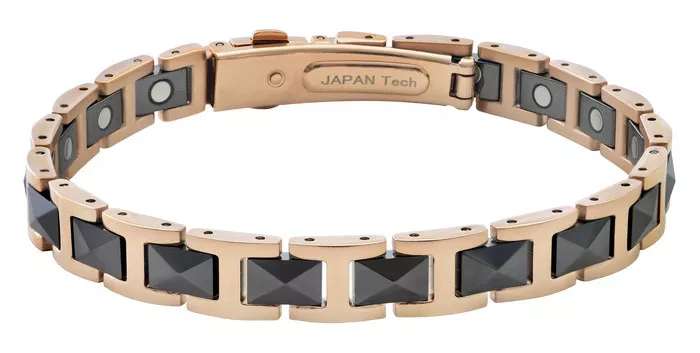Magnetic bracelets have gained popularity in recent years for their purported health benefits, ranging from pain relief to improved circulation. These bracelets typically contain magnets that are believed to interact with the body’s magnetic field, thereby influencing various bodily functions. While many people swear by the positive effects of magnetic therapy, it’s essential to recognize that these bracelets may not be suitable for everyone. In this article, we’ll explore who should avoid wearing magnetic bracelets and why.
1. Individuals with Pacemakers or Other Implanted Medical Devices
One of the primary concerns regarding the use of magnetic bracelets is their potential interaction with pacemakers and other implanted medical devices. Pacemakers rely on electrical impulses to regulate the heartbeat, and any interference from external magnetic fields could disrupt their function. Similarly, other implanted devices such as defibrillators and insulin pumps may also be affected by strong magnetic fields. Therefore, individuals with such medical implants should avoid wearing magnetic bracelets to prevent any adverse effects on their health.
2. Pregnant Women
Pregnant women are often advised to exercise caution when it comes to exposure to magnetic fields. While there is limited scientific evidence on the effects of magnetic bracelets during pregnancy, it’s better to err on the side of caution. The developing fetus is particularly vulnerable to external influences, and any potential risks associated with magnetic therapy should be avoided during pregnancy. Additionally, some magnetic bracelets may contain materials or components that could pose risks to pregnant women or their unborn babies.
3. Individuals with Certain Medical Conditions
Certain medical conditions may warrant avoiding the use of magnetic bracelets. For example, individuals with bleeding disorders or those taking blood-thinning medications should be cautious, as magnets may interfere with blood clotting mechanisms. Likewise, people with epilepsy or seizure disorders should avoid strong magnetic fields, as they could potentially trigger seizures. Additionally, individuals with compromised circulation, such as those with peripheral artery disease, should consult with their healthcare provider before using magnetic bracelets, as they may exacerbate circulation problems.
4. Those Allergic to Metals
Many magnetic bracelets are made from various metals such as stainless steel, copper, or titanium. While these metals are generally considered safe for most people, some individuals may have allergies or sensitivities to certain metals. Nickel, for example, is a common allergen found in many metal alloys and can cause skin irritation or allergic reactions in sensitive individuals. Therefore, anyone with known metal allergies should avoid wearing magnetic bracelets or opt for hypoallergenic alternatives made from materials such as titanium or silicone.
5. Children
Children are still growing and developing, and their bodies may react differently to external stimuli compared to adults. While there is limited research on the safety of magnetic bracelets for children, it’s generally advisable to exercise caution. Children may be more susceptible to potential risks associated with magnetic therapy, and there is a lack of evidence supporting its efficacy in pediatric populations. Additionally, there is a risk of small children swallowing or choking on magnetic bracelet components, making them unsuitable for use by young children without close supervision.
6. Individuals with Open Wounds or Skin Conditions
Magnetic bracelets are typically worn directly on the skin, which can pose problems for individuals with open wounds or certain skin conditions. The magnets in the bracelet could potentially interfere with the wound healing process or exacerbate skin conditions such as eczema or dermatitis. Furthermore, the friction between the bracelet and the skin could irritate sensitive or broken skin, leading to discomfort or complications. Individuals with skin conditions or open wounds should avoid wearing magnetic bracelets until their skin has fully healed and consult with a healthcare professional if unsure.
Conclusion
While magnetic bracelets may offer benefits for some individuals, they are not suitable for everyone. Certain groups, including those with pacemakers or other implanted medical devices, pregnant women, individuals with certain medical conditions, those allergic to metals, children, and individuals with open wounds or skin conditions, should avoid wearing magnetic bracelets to prevent potential adverse effects on their health. As with any form of therapy or treatment, it’s essential to consult with a healthcare professional before using magnetic bracelets, especially if you have underlying medical conditions or concerns about their safety. By exercising caution and understanding who should not wear magnetic bracelets, individuals can make informed decisions about their health and well-being.

